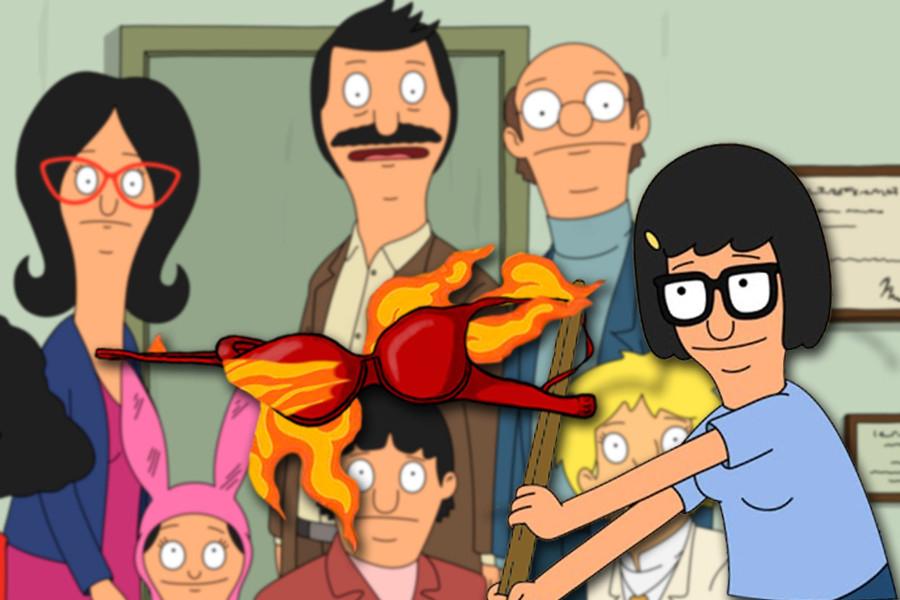Forget about the explicit sexual tones and hyper masculine ideologies behind most adult animated shows. “The Simpsons,” known for its vulgarity and humility, or “South Park’s” complete dissonance of women both have utterly dominated this genre of television.
That is, until 2011, when we met the 4th wave feminists of “Bob’s Burgers.”
“Bob’s Burgers” has a simple structure. There’s the dad, Bob, who runs a family burger joint below his house with his wife, Linda, where they live with their three children, Tina, Gene and Louise Belcher. The show revolves around them working as a family raising their children to become good people.
It isn’t so often that animated shows could be declared “feminist,” maybe “Daria” and “Eliza and the Wild Thornberry’s,” but both of those have ended, disappointing young girls across the nation.
It is pertinent to remember that shows like this one can cultivate a following. According to a study by the Animation World Network, “Gender in Media: Females Don’t Rule,” animated shows and films from 1999-2006, found “male characters outnumbered female characters in all genres by as much as 2 to 1…the girls and women portrayed were hyper sexualized for the most part…”
Tina, the eldest of the three is a sexually-perverted, uncanny preteen. She’s stuck inside a kooky exterior only to be obviously represented by her oversized glasses and high socks. The character was originally a male but was removed after the first episode. Then come Tina, a favorite for fans and a friend for girls struggling with their image in real life, so long as they can get past her awkwardness.
Not to mention, Tina is actually going through puberty throughout the show.
“I’m a smart, strong, sensual woman.”
“I’m no hero. I put my bra on one boob at a time like everyone else.”
These are just some of the things Tina says, making a connection of awkward adolescence to a universal group of confused, preteen girls—and interestingly enough, her character is played by a male actor.
Tina isn’t the only positive figure to look up to on this show, but her mom Linda as well.
One episode, “Linda-pendent Woman,” is about Linda trying out different jobs to not feel in the shadow of her husband and the burger joint. She ends up working at a Trader Joe’s-esque grocery store and becomes manager.
Of course, this is nothing monumental in the real world, but it does speak volumes for animated shows that are mostly filled with masculine principles.
The middle child is no exception. Gene, is not only in full support of his sisters but has a true understanding of what he has called “woman’s troubles.” Gene is sympathetic and concerned when his family members have problems and is often the character that sews things back together when there are disagreements.
In one episode, Gene is watching two boys wrestle on the beach, in what he finds a very immature manner. He says, “This is why I’m only friends with women,” an inclination of his pro-feministic ethics.
One of the greatest things about these kids is the support and affection they receive from their parents. Not once are the swayed away from their beliefs or told hyper masculine views to make their gender identity “stronger” but receive praise for their intellectual understanding of all human beings—their sex aside.
Geena Davis, the famous actress known for her roles in “Beetlejuice,” “Thelma and Louise” and many others has fought for years on gender equality in children’s media. Davis created an institute on Gender in Media, where parents can help educate their children and create a better gender equality experience when watching shows and children’s movies.
According to her findings, 50 percent of gender balance within family films was “extremely male centric.”
Shows like “Bob’s Burgers” have changed statistics like this by allowing women to be on an equal platform alongside their male counterparts.
The development of each character on this show is constantly evolving, and now on its fifth season, one can only hope for more influential lessons about growing up in a very unfamiliar and awkward time.









